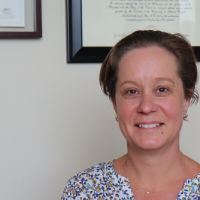Infusion of human umbilical cord tissue mesenchymal stromal cells in children with autism spectrum disorder.
Date
2020-10
Journal Title
Journal ISSN
Volume Title
Repository Usage Stats
views
downloads
Citation Stats
Abstract
Ongoing neuroinflammation may contribute to symptoms of autism spectrum disorder (ASD) in at least a portion of affected individuals. Mesenchymal stromal cells (MSCs) have demonstrated the capacity to modulate neuroinflammation, but safety and feasibility of MSC administration in children with ASD have not been well established. In this open-label, phase I study, 12 children with ASD between 4 and 9 years of age were treated with intravenous (IV) infusions of human cord tissue mesenchymal stromal cells (hCT-MSCs), a third-party MSC product manufactured from unrelated donor umbilical cord tissue. Children received one, two, or three doses of 2 × 106 cells per kilogram at 2-month intervals. Clinical and laboratory evaluations were performed in person at baseline and 6 months and remotely at 12 months after the final infusion. Aside from agitation during the IV placement and infusion in some participants, hCT-MSCs were well tolerated. Five participants developed new class I anti-human leukocyte antigen (HLA) antibodies, associated with a specific lot of hCT-MSCs or with a partial HLA match between donor and recipient. These antibodies were clinically silent and not associated with any clinical manifestations to date. Six of 12 participants demonstrated improvement in at least two ASD-specific measures. Manufacturing and administration of hCT-MSCs appear to be safe and feasible in young children with ASD. Efficacy will be evaluated in a subsequent phase II randomized, placebo-controlled clinical trial.
Type
Department
Description
Provenance
Citation
Permalink
Published Version (Please cite this version)
Publication Info
Sun, Jessica M, Geraldine Dawson, Lauren Franz, Jill Howard, Colleen McLaughlin, Bethany Kistler, Barbara Waters-Pick, Norin Meadows, et al. (2020). Infusion of human umbilical cord tissue mesenchymal stromal cells in children with autism spectrum disorder. Stem cells translational medicine, 9(10). pp. 1137–1146. 10.1002/sctm.19-0434 Retrieved from https://hdl.handle.net/10161/24560.
This is constructed from limited available data and may be imprecise. To cite this article, please review & use the official citation provided by the journal.
Collections
Scholars@Duke
Jessica Muller Sun

Geraldine Dawson
Geraldine Dawson is the William Cleland Distinguished Professor of Psychiatry and Behavioral Sciences at Duke University, where she also is a Professor of Pediatrics and Psychology & Neuroscience. Dawson also is the Founding Director of the Duke Center for Autism and Brain Development, an NIH Autism Center of Excellence, which is an interdisciplinary research program and clinic, aimed to improve the lives of those diagnosed with autism through research, education, clinical services, and policy. Dawson received a Ph.D. in Developmental and Child Clinical Psychology from the University of Washington and completed a clinical internship at the UCLA Neuropsychiatric Institute.
Dawson's work focuses on improving methods for early detection and intervention for autism, understanding brain function in autism, and validation of autism EEG biomarkers. She co-developed the Early Start Denver Model, an empirically-validated early autism intervention that is used worldwide. She collaborates with colleagues in the departments of computer science and engineering, pediatrics, and biostatistics to develop novel digital health approaches to autism screening and outcome monitoring.
Dawson previously served as Director of the Duke Institute for Brain Sciences, President of the International Society for Autism Research, and was appointed by the US Secretary of Health as a member of the NIH Interagency Autism Coordinating Committee (IACC) which develops the federal strategic plan for autism research, services, and policy. Dawson is a member of the American Academy of Arts and Sciences. She was Founding Director of the University of Washington (UW) Autism Center and the Duke Center for Autism and Brain Development. Dawson's awards include the American Psychological Association Distinguished Career Award (Div53); Association for Psychological Science Lifetime Achievement Award; Clarivate Top 1% Cited Researcher Across All Scientific Fields; among others. Dawson is a Fellow of the International Society for Autism Research, the American Psychological Society, and the American Psychological Association.

Lauren Franz
Dr Franz's research focuses on improving access to evidence-based services and support for neurodevelopmental disabilities, including autism, in diverse, low-resource, local and global communities.

Jill E. Howard
Autism spectrum disorder diagnosis and treatment, infant-toddler risk and diagnosis, trajectories of early development
Colleen A McLaughlin

Jesse David Troy
I am the Associate Director of Graduate Studies for the Master of Biostatistics program. I am also an instructor in the Clinical Research Training Program. I work on research studies in cancer therapeutics and palliative care at the Duke Cancer Institute.
Unless otherwise indicated, scholarly articles published by Duke faculty members are made available here with a CC-BY-NC (Creative Commons Attribution Non-Commercial) license, as enabled by the Duke Open Access Policy. If you wish to use the materials in ways not already permitted under CC-BY-NC, please consult the copyright owner. Other materials are made available here through the author’s grant of a non-exclusive license to make their work openly accessible.
